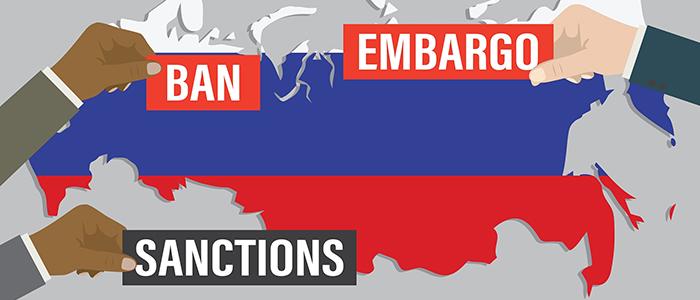A new legislative proposal spearheaded by Senator Lindsey Graham aims to impose stringent sanctions on Russia, threatening to disrupt U.S. trade relations with some of the world’s largest economies. The bill, described by critics as “bone crushing,” seeks to tighten economic pressure amid ongoing geopolitical tensions, raising concerns over potential ripple effects on global commerce. As policymakers weigh the measure, its far-reaching implications could redefine America’s economic engagement on the international stage.
Graham’s Russia Sanctions Bill Threatens to Disrupt US Trade with Major Global Economies
The proposed legislation spearheaded by Senator Lindsey Graham has raised alarm among international trade experts and economic policymakers. The bill’s extensive sanctions on Russia are expected to have far-reaching consequences beyond the immediate geopolitical scope, potentially severing key trade partnerships between the United States and several of the world’s economic powerhouses. Critics warn that the bill’s broad restrictions could inadvertently hinder U.S. exports and imports with major markets, including China, Germany, and Japan, creating ripple effects throughout the global supply chain.
Industry analysts highlight several sectors that stand to be impacted:
- Automotive manufacturing: Reliance on cross-border supply chains may see significant delays and cost surges.
- Energy exports: Restrictions could undermine U.S. standing in global energy markets.
- Technology exchange: Barriers to critical semiconductor shipments may disrupt innovation and production timelines.
| Country | Potential Trade Impact | Key Concern |
|---|---|---|
| China | 15% export decline | Supply chain disruption |
| Germany | 12% import delays | Automotive sector hit |
| Japan | 10% reduction in tech trade | Semiconductor shortages |
Analysis of Potential Economic Fallout and International Repercussions
The proposed sanctions bill, often dubbed as “bone crushing,” threatens to upend not only U.S.-Russia trade but also the broader landscape of international commerce. By imposing stringent restrictions on transactions with Russia, which remains a pivotal player in global energy and commodity markets, the United States risks triggering a cascade of economic disruptions. Key allies such as the European Union, China, and India-each with substantial trade volumes tied to Russia-could face substantial barriers to their supply chains, leading to shortages, inflationary pressures, and diminished economic growth. The bill’s uncompromising approach may inadvertently isolate U.S. businesses from lucrative markets, igniting retaliatory measures and fracturing longstanding trade partnerships.
Potential areas of impact include:
- Energy exports and imports, particularly natural gas and oil
- Global commodity prices and supply chain reliability
- Cross-border investments and financial transactions
- Diplomatic relations affecting multinational agreements
| Economic Indicator | Predicted Impact | Timeframe |
|---|---|---|
| U.S. Export Revenues | -15% decline | 6-12 months |
| Global Energy Prices | +20% volatility spike | Immediate to short-term |
| Foreign Direct Investment | Reduced by 10% | 1 year |
The international political landscape will likely shift, with allies forced to navigate between adhering to U.S. sanctions and maintaining their own strategic economic interests. Countries heavily reliant on Russian commodities may seek alternative alliances or increase cooperation with non-Western blocs, potentially weakening transatlantic unity. Additionally, the global financial system could face unprecedented strain as multinational corporations reevaluate risk exposure, insurance liabilities, and compliance costs. The cascading diplomatic and economic effects underscore the bill’s far-reaching implications beyond its intended punitive scope.
Strategic Recommendations for Policymakers to Mitigate Trade Freezes and Preserve Diplomatic Relations
In light of the severe implications posed by the proposed sanctions bill, policymakers must adopt a multi-faceted strategy that balances firm responses to geopolitical conflicts with the imperative of maintaining global trade flows. Central to this approach is the cultivation of diplomatic channels designed to de-escalate tensions quickly, thereby avoiding prolonged trade standstills that could ripple across key economic partnerships. Additionally, leveraging targeted sanctions, rather than broad-based restrictions, can help isolate specific entities or sectors without provoking widespread economic backlash.
To operationalize these priorities, governments should focus on:
- Enhancing multilateral dialogues with allied nations to coordinate sanctions efforts and prevent trade friction.
- Implementing adaptive trade policies that safeguard domestic industries while preserving export opportunities.
- Establishing rapid response teams within trade bureaus to monitor and mitigate emergent disruptions.
- Investing in diplomatic backchannels to maintain open communication with rival economies despite heightened political tensions.
| Policy Measure | Objective | Expected Impact |
|---|---|---|
| Targeted Sanctions | Limit specific actors without freezing entire markets | Reduces collateral damage to allied economies |
| Multilateral Coordination | Unified global stance to reinforce sanction legitimacy | Minimizes loopholes and trade diversion |
| Wrapping Up
As Senator Lindsey Graham’s proposed sanctions bill advances, its potential to disrupt established trade relationships with Russia and other major global economies raises significant concerns among policymakers and industry leaders alike. With U.S. economic interests and geopolitical alliances hanging in the balance, the coming weeks will be critical in determining whether this “bone crushing” legislation will reshape America’s role on the international trade stage. Stakeholders across sectors will be watching closely as debates continue over how to balance national security priorities with the demands of an interconnected global economy. |




